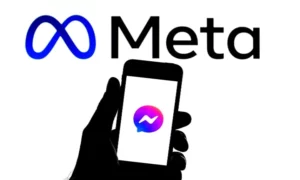Google will presently tell clients when list items are quickly switching up a breaking story. A few inquiries will currently raise an admonition that “it looks like these results are changing quickly,” and a subheading will clarify that “if this topic is new, it can sometimes take time for results to be added by reliable sources.” In a blog entry, the organization proposes that clients should return some other time when it’s discovered more outcomes.
The notification is at first showing up on US-based English-language results “when a topic is rapidly evolving and a range of sources hasn’t yet weighed in.” Google will extend the apparatus’ essence to different business sectors in the coming months.
“While Google Search will always be there with the most useful results we can provide, sometimes the reliable information you’re searching for just isn’t online yet,” the organization clarifies. “This can be particularly true for breaking news or emerging topics, when the information that’s published first may not be the most reliable.” Recode wrote about the element yesterday, circling back to a tweet from Stanford Internet Observatory scientist Renee DiResta.
An example Google search screen capture includes the inquiry ““ufo filmed traveling 106 mph,” an evident reference to a new newspaper tale around a 2016 UFO locating in Wales. (At present, that exact output doesn’t really incorporate the admonition.) “Someone had gotten this police report video released out in Wales, and it’s had a little bit bit of press coverage. But there’s still not a lot about it,” Google search public contact Danny Sullivan told Recode. “But people are probably searching for it, they may be going around on social media — so we can tell it’s starting to trend. And we can also tell that there’s not a lot of necessarily great stuff that’s out there. And we also think that maybe new stuff will come along.”
That unconventional model to the side, Google has incidentally exhibited wrong data after mass shooting occasions — where early authority reports are frequently erroneous and intentional falsehood is normal. (This is now and again exacerbated by “data voids,” or catchphrases that have not many indexed lists and can be handily captured by agitators.) This notice will not really prevent awful substance from surfacing, and it’s anything but clear precisely how Google decides an adequate scope of sources. Yet, it could eliminate a portion of the bogus authenticity that high Google arrangement can give on ahead of schedule, inconsistent list items.
Disclaimer: The views, suggestions, and opinions expressed here are the sole responsibility of the experts. No Chicago Headlines journalist was involved in the writing and production of this article.





